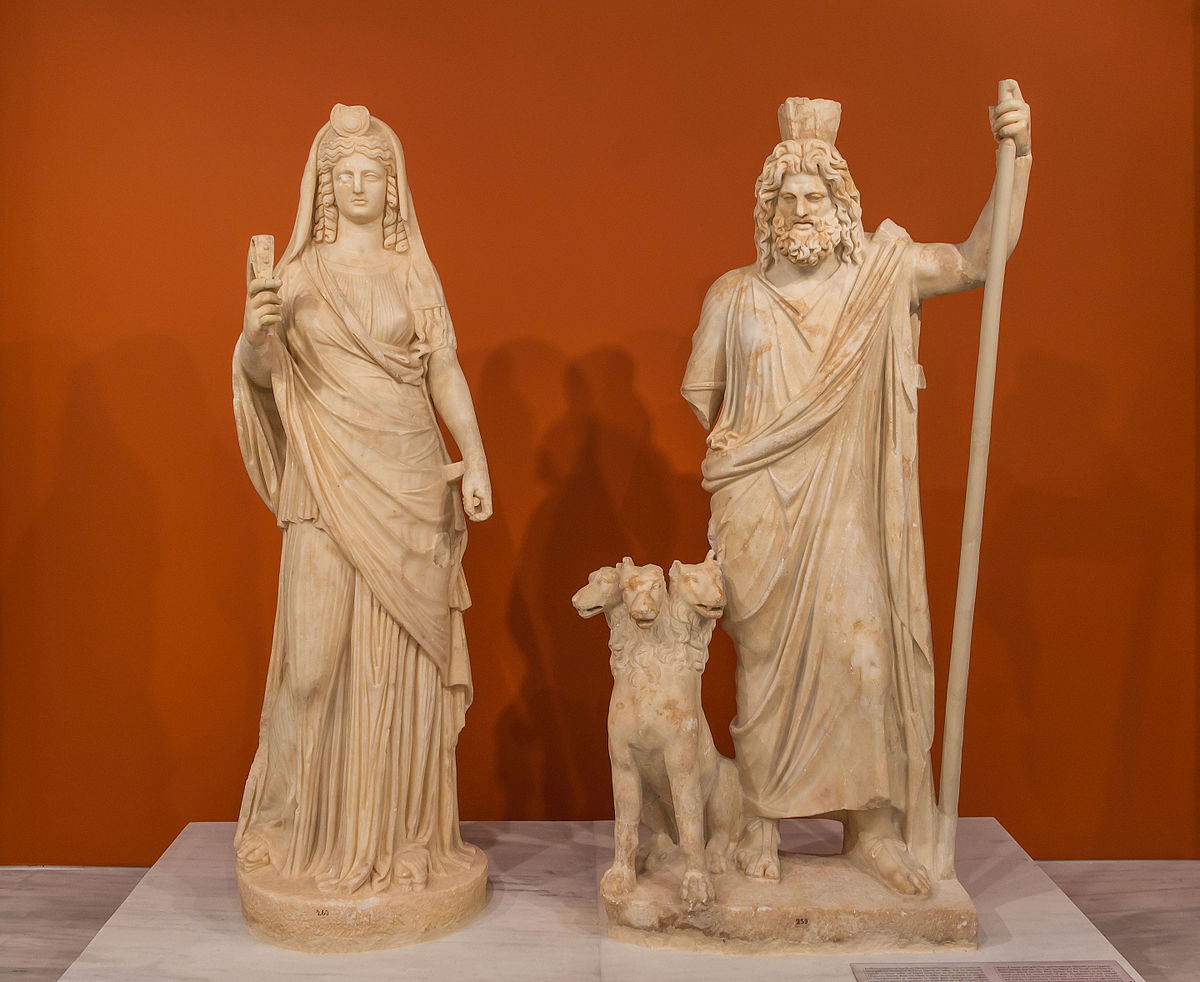steve_bank
Diabetic retinopathy and poor eyesight. Typos ...
Jumping over from a post by DBT.
A wide subject of which I have only an overview.
DBT: Not to mention Paul's plagiarism of Greek philosophy.
Aquinas was another major influence on Christianity. Read a book The Dumb Ox.
The Golden Rule in various forms predates Christianity in most or all earlier cultures. It makes sense and is obvious, the Golden Rule is about maintaining social and civil order. The opposite of the stereotypical image of the American Old West where it was everybody for themselves.
Regardless whether it ca from god in a buening bush, the 10 Commandments were about Jewish tribal civil and social order.

 en.wikipedia.org
en.wikipedia.org
The idea that Christianity has ever represented a who may have been an itinerant Jewish rabbi o0r Jesus was new has no foundation.

 en.wikipedia.org
en.wikipedia.org
A wide subject of which I have only an overview.
DBT: Not to mention Paul's plagiarism of Greek philosophy.
Aquinas was another major influence on Christianity. Read a book The Dumb Ox.
AI Overview
Paul the Apostle and the creation of Christianity | All ...
Paul's writings and ministry show significant Greek influence, particularly in his use of Greek philosophical ideas and rhetorical styles. Born in Tarsus, a center of Greek culture, Paul likely received a strong Greek education, which is reflected in his writings. He utilized Greek philosophical concepts, like those of Plato and the Stoics, to explain Christian theology to his audiences. This engagement with Greek thought allowed him to bridge the gap between Jewish and Greek intellectual traditions, contributing to the rapid spread of Christianity in the Greco-Roman world.
AI Overview
Thomas Aquinas - World History Encyclopedia
Thomas Aquinas heavily incorporated Greek philosophy, particularly Aristotle's ideas, into his theological and philosophical system, known as Thomism. He viewed reason, as exemplified in Greek philosophy, as a tool to understand and explain Christian doctrine, even to demonstrate the existence of God. Aquinas's synthesis of faith and reason, drawing from both Greek philosophy and Christian theology, became a cornerstone of medieval thought and continues to influence both religious and philosophical discourse.
AI Overview
The concept of "love your neighbor as yourself," though often associated with religious teachings, also resonates with philosophical ideas, particularly within Greek philosophy. While not a direct quote from any specific Greek philosopher, the sentiment of reciprocal care and concern for others can be found in various schools of thought, particularly in Stoicism and its emphasis on virtue and social responsibility.
The Golden Rule in various forms predates Christianity in most or all earlier cultures. It makes sense and is obvious, the Golden Rule is about maintaining social and civil order. The opposite of the stereotypical image of the American Old West where it was everybody for themselves.
Regardless whether it ca from god in a buening bush, the 10 Commandments were about Jewish tribal civil and social order.

Golden Rule - Wikipedia
The Golden Rule is the principle of treating others as one would want to be treated by them. It is sometimes called an ethics of reciprocity, meaning that one should reciprocate to others how one would like them to treat the person (not necessarily how they actually treat them). Various expressions of this rule can be found in the tenets of most religions and creeds through the ages.[1]
According to Simon Blackburn, the Golden Rule "can be found in some form in almost every ethical tradition".<a href="https://en.wikipedia.org/wiki/Golden_Rule#cite_note-20"><span>[</span>20<span>]</span></a> A multi-faith poster showing the Golden Rule in sacred writings from 13 faith traditions (designed by Paul McKenna of Scarboro Missions, 2000) has been on permanent display at the Headquarters of the United Nations since 4 January 2002.<a href="https://en.wikipedia.org/wiki/Golden_Rule#cite_note-poster1-21"><span>[</span>21<span>]</span></a> Creating the poster "took five years of research that included consultations with experts in each of the 13 faith groups."<a href="https://en.wikipedia.org/wiki/Golden_Rule#cite_note-poster1-21"><span>[</span>21<span>]</span></a> (See also the section on Global Ethic.)
The idea that Christianity has ever represented a who may have been an itinerant Jewish rabbi o0r Jesus was new has no foundation.

Syncretism - Wikipedia
Syncretism (/ˈsɪŋkrətɪzəm, ˈsɪn-/)[1] is the practice of combining different beliefs and various schools of thought. Syncretism involves the merging or assimilation of several originally discrete traditions, especially in the theology and mythology of religion, thus asserting an underlying unity and allowing for an inclusive approach to other faiths. While syncretism in art and culture is sometimes likened to eclecticism, in the realm of religion, it specifically denotes a more integrated merging of beliefs into a unified system, distinct from eclecticism, which implies a selective adoption of elements from different traditions without necessarily blending them into a new, cohesive belief system.


